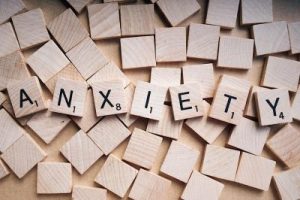Well, the good news is that there is a vast range of approaches that you can use to help manage and reduce the reoccurrence of anxiety.
The two questions on your mind right now are likely to be:
- How can I help myself manage my anxiety?
- What treatment can I get for my anxiety?
Getting help for anxiety
Being in tune with how you are feeling and recognising that you are affected by anxiety is a very positive first step. The second step is to get help.
Depending upon the impact of the anxiety on your life, you may wish to consider self-help. Self-help, on its own, can be ideal when you are affected by mild forms of anxiety. If however, your anxiety is more severe and affecting your life, work and relationships, it may be necessary to get professional help.
Many people will use a combination of self-help and professional support from a Doctor or qualified mental health professional to support the management of their anxiety.
How can I help myself manage my anxiety?
There are a variety of coping mechanisms that can be used on their own or together to support you through your anxiety. With practice, some of these can become so effective that they can pre-empt anxiety attacks. As you begin to understand the early warning signs and with practice, you can find yourself using the coping mechanisms without even realising.
Talk to someone you trust
The simple act of talking to someone you trust can be one of the most effective techniques for managing your anxiety. After all, we have all heard of the benefits of ‘getting it off your chest’. Sometimes it will be just the act of speaking your worries out loud that will help. Other times you’ll find the person you are sharing with has gone through something similar and can help you talk it through.
Many people struggle the first time they open up about their feelings and worries. It’s not something we’ve learned to do particularly well in modern-day society. But those who do manage to talk, often describe it as liberating.
It might be that you can talk to a relative, trusted friend, partner, colleague, boss, community leader, school/college/university counsellor, doctor, or even a counsellor.
Get your breathing under control
Even though you have been breathing continuously since the day you were born, when anxiety strikes, your breathing technique can deteriorate quickly. In difficult times, we often switch from deeper breathing to short, sharp breaths.
Breathing effectively can be one of the best methods for helping when we are feeling anxious or overly worried.
Learning to breathe more deeply can help you feel a lot calmer.
- Breathe in through your nose and out through your mouth. Try to keep your shoulders down and relaxed, and place your hand on your stomach – it should rise as you breathe in and fall as you breathe out.
- Count as you breathe. Start by counting ‘one, two, three, four’ as you breathe in and ‘one, two, three, four’ as you breathe out. Try to work out what’s comfortable for you.
Change your focus and reconnect
Something as simple as changing your focus or distracting yourself can have a remarkable effect. There might be something you like reading or looking at, such as a picture or flower, even old photos. Alternatively, you could try this 5, 4, 3, 2, 1 grounding technique:
5, 4, 3, 2, 1 grounding
This simple technique will help you connect back with your surroundings and the present. It is a useful calming technique to use whenever you feel anxious or have become disconnected from your environment in any way.
BEGIN: Take a deep belly breath to begin.
5 – LOOK: Look around for 5 things that you can see, and say them out loud. For example, you could say, I see the computer, I see the cup, I see the picture frame.
4 – FEEL: Pay attention to your body and think of 4 things that you can feel, and say them out loud. For example, you could say, I feel my feet warm in my socks, I feel the hair on the back of my neck, or I feel the pillow I am sitting on.
3 – LISTEN: Listen for 3 sounds. It could be the sound of traffic outside, the sound of typing or the sound of your tummy rumbling. Say the three things out loud.
2 – SMELL: Say two things you can smell. If you’re allowed to, it’s okay to move to another spot and sniff something. If you can’t smell anything at the moment or you can’t move, then name your 2 favourite smells.
1 – TASTE: Say one thing you can taste. It may be the toothpaste from brushing your teeth or a mint from after lunch. If you can’t taste anything, then say your favourite thing to taste.
END: Take another deep belly breath to end.
Do something you enjoy doing
The simple act of switching from thinking about something that has caused us to be anxious about something we feel comfortable with can have a significant effect on our mood.
Maybe there is a piece of music you particularly like, a book you enjoy reading, a particular walk, a friend you like chatting with or a particular show on Netflix. Sometimes all it takes is something very normal, familiar and comforting to distract us from our worries to reset how we are feeling.
Self-reassurance
It can often be useful to simply tell ourselves that the situation we find us in isn’t really dangerous or risky and that the symptoms you are experiencing are caused by anxiety. Remember the fight or flight reflex? Sometimes just reminding ourselves that there isn’t a sabre-toothed tiger out there can make a huge difference.
Exercise – Get moving
Physical exercise is one of the most forgotten tools when it comes to managing anxiety and panic attacks. Exercise is proven to be extremely beneficial for our mental health, so powerful in fact that its impact can rival the effect of anxiety and depression medications.
How about going for a walk, or if you are brave enough a run or a trip to the gym? Even if you can’t get out or have limited mobility, there are exercises that you can do at home or in the comfort of your chair. You can even do some in the office without your colleagues noticing if you need to.
Keep a diary or journal
Many people find keeping a daily diary or journal useful for helping manage a variety of mental health conditions. It can be particularly helpful for anxiety, particularly in terms of getting a picture of what triggers the anxiety and how you felt in the run out to it. By identifying recurring patterns, you can learn to spot the early warning signs and take action.
You might even find it useful to keep a note of the times when anxiety doesn’t affect you, or to document your successes when you managed or got to grips with your anxiety effectively.
Maintain a healthy diet
Whilst, grabbing something to eat that you enjoy or even cooking a nice meal can be a great distraction, eating and drinking properly in the first place can help.
Some people will find that their anxiety is triggered by stimulants such as coffee, cigarettes and alcohol. Understanding what impacts you, and constraining your intake can be beneficial. In fact, you might find you’ve been grabbing a coffee when you felt stressed, only to find that its the coffee which amplifies your feelings.
Noting your food and drink intake in your diary or journal alongside your mood level can be a good way to see if there is a correlation between the two.
Are you sleeping enough?
We all know that most adults need 7 to 8 hours sleep a day, but are you getting that? If you are sleeping less than recommended and also experiencing feelings of anxiety, then changing your sleep patterns might be the quickest most effective thing you could try to help reduce your anxiety levels.
Again, keep a note of your sleep patterns in your diary or journal, and you might find that you start to see a pattern emerge. If you are having problems sleeping, then talk to your doctor or look for self-help techniques. Often the most effective are the simplest, such as not using your phone immediately before sleeping. Maintaining a healthy sleeping environment is key to a good nights rest.
Complimentary therapies
We have discussed exercise, but there is a vast range of easily accessible things that you can do or take part in that can be beneficial for managing your anxiety. Yoga, mindfulness, meditation, aromatherapy, reflexology, hypnotherapy and other complementary techniques can be helpful. You might find that one or more of these or other methods provide the grounding and relaxation you need to sleep better and manage the symptoms of anxiety or panic attacks.
What treatment can I get for my anxiety?
Help for managing your anxiety is available via your doctor or by going directly to a mental health professional.
Amongst the most effective treatments for anxiety are:
- Talking therapies
- Self-help resources and techniques
- Certain types of medication
Talking therapies
Talking treatments are generally what we all think of when we hear the words counselling or therapy.
Talking therapies generally involve working with a trained therapist to understand the causes of your anxiety and to find strategies to manage it. There is a wide range of therapies available, but one of the most common and easily accessible is Cognitive Behavioural Therapy (CBT). There is reliable evidence of the effectiveness of CBT.
Cognitive Behavioural Therapy
CBT is a particular type of talking therapy which aims to identify connections between thoughts, feelings and behaviour. The aim is to help you develop practical skills to manage these effectively and positively.
CBT is based upon the idea that how we think about situations affects the way we feel and behave. For example, if we encounter a situation in which we might experience negative emotions, we tend to act in a certain way. Our negative thinking patterns and the way we react are often based upon patterns formed as early as childhood. We become so used to behaving a certain way that it becomes automatic, and as a consequence, the way we feel each day can effectively be preprogrammed for us.
By challenging how we react to what we are feeling and the automatic responses we have CBT allows us to learn alternate ways of dealing with the situations that we find ourselves in. By ‘reprogramming’ our responses, we can learn to use alternate coping mechanisms in situations in which we might normally feel anxious.
CBT has the benefit of being a flexible form of therapy and can be adapted to a number of conditions we may experience, not only being used for anxiety and panic disorders but a broad range of mental health conditions.
Accessing Cognitive Behavioural Therapy
CBT can be accessed in a variety of ways:
- individually with one to one with a therapist
- in a group setting
- through self-help books
- through online tools and apps
To find a way that works for you it is recommended that you talk with your doctor or a trained mental health professional.
Cognitive Behavioural Therapy at Aspire Counselling
Maria Luedeke at Aspire Counselling, Singapore is a qualified and experienced CBT Counsellor who works with people wanting to improve their mental health. Maria is highly experienced when it comes to anxiety and can utilise a number of techniques to help you. Maria works with both adults and adolescents, needing help and support for anxiety and other issues. Maria is available to provide support and guidance both face to face and over secure video counselling, working both locally and internationally.





